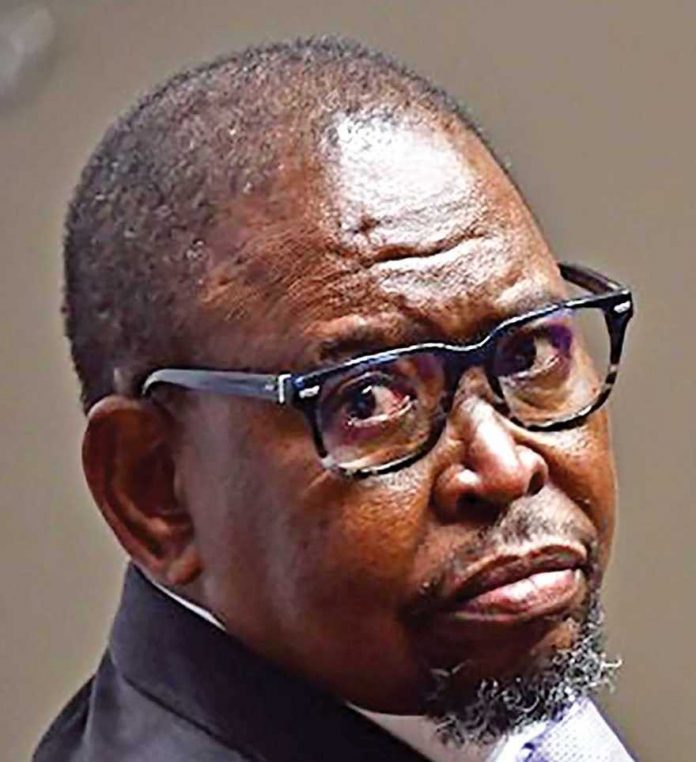It was inevitable when Finance Minister Enoch Godongwana took to the podium in parliament on Wednesday that Eskom and Transnet would be mentioned as the two biggest culprits behind South Africa’s sluggish economic performance.
It is clear that both the national power utility and the state-owned freight rail company deserve special attention if economic growth is to be stimulated in the coming years.
Political leadership
And whatever remedy the government prescribes, it needs to start with the political leadership of the two entities.
Of course high inflation, rising borrowing costs, and a weaker global environment are also factors.
But given the dire state of Eskom and Transnet, it is ironic that Public Enterprises Minister Pravin Gordhan is still keeping his job when, year after year, the same state-owned entities he oversees continue to be an albatross for economic growth and job creation.
Godongwana pointed out the challenges everywhere except at Gordhan’s door.
He said the logistics system faced significant challenges such as deteriorating rail performance and inefficient ports.
“Rail underperformance is estimated to have cost up to 5% of GDP [gross domestic product] in 2022, with losses in the region of R50-billion in the minerals sector alone,” said the minister.
Crisis committee appointed
In typical President Cyril Ramaphosa’s leadership style, some crisis committee has been appointed to fix the problems the minister gets paid to fix.
And the approach is supposedly informed by interventions in loadshedding, which somehow keeps worsening.
Godongwana would only acknowledge Transnet’s central role in moving goods and commodities to local and international markets and the implications for business, people’s lives, the economy, and our global competitiveness when it is dysfunctional. True.
“No modern economy can thrive and grow new industries if rail lines are beset by delays and ports are unable to efficiently handle incoming and outgoing cargo.
“Transnet’s performance in this regard has been underwhelming, and its operations have been strained by a worsening financial state,” said Godongwana.
The first time Godongwana mentioned the Department of Public Enterprises, he said: “Recognising the seriousness of the situation, the National Treasury is working with Transnet and the Department of Public Enterprises to ensure that Transnet can meet its immediate debt obligations.”
Then the usual mantra of reforms, roadmaps, enhancing efficiencies, facilitating competition, and leveraging the private sector’s financial and technical support.
What was missing in Godongwana’s medium-term budget policy statement was the extent of accountability the current administration under Ramaphosa took for the longstanding economic stagnation.
His speech lacked self-reflection as if the economic challenges facing the country were all an act of God and not the consequences of consistent political interference and wrong policy choices.
Gordhan’s interferece
Transnet is the best example, where part of the problem with its weak performance should be traced back to interference by Gordhan in 2020 when Transnet was scouting for a CEO.
First, it took more than six months after interviews to appoint Portia Derby, who recently quit the post. The delay was due to a disagreement between the board and Gordhan over a suitable candidate.
Yet those in charge, like Gordhan, knew that the appointment of a permanent CEO was crucial to provide leadership and revive the state-owned rail, port, and pipeline company.
Also, it is the board’s prerogative to identify a suitable candidate, not Gordhan.
But Gordhan rejected the board’s preferred candidate, Patrick Dlamini, then CEO of the Development Bank of Southern Africa.
It was in the middle of this stand-off that Derby was parachuted to the post without even going through interviews like all other candidates.
Derby was handpicked, and Gordhan accused those who questioned him of staging “an attempt to disrupt the process of appointing a CEO with the required skills who will continue the process of rooting out corruption and state capture at Transnet”.
Former Eskom CEO Andre de Ruyter was appointed similarly.
De Ruyter quit Eskom last December. Derby resigned in September, and there was hardly any doubt that her tenure at Transnet was a disaster.
But Gordhan still keeps his job, and Godongwana says nothing about fixing that.
Instead, we are led to believe that the same minister has found an even better candidate who will do better than his previous disastrous choice.



